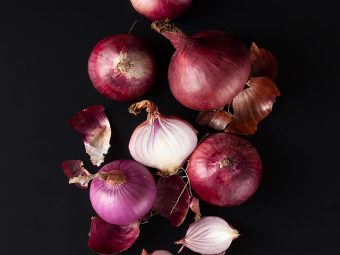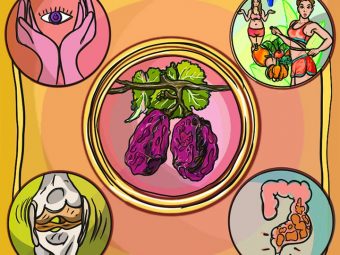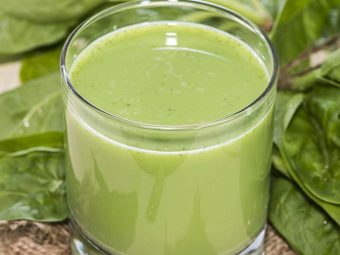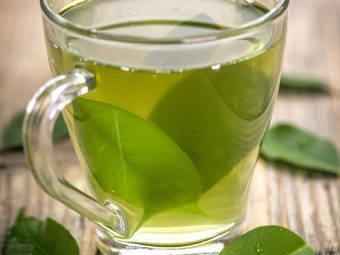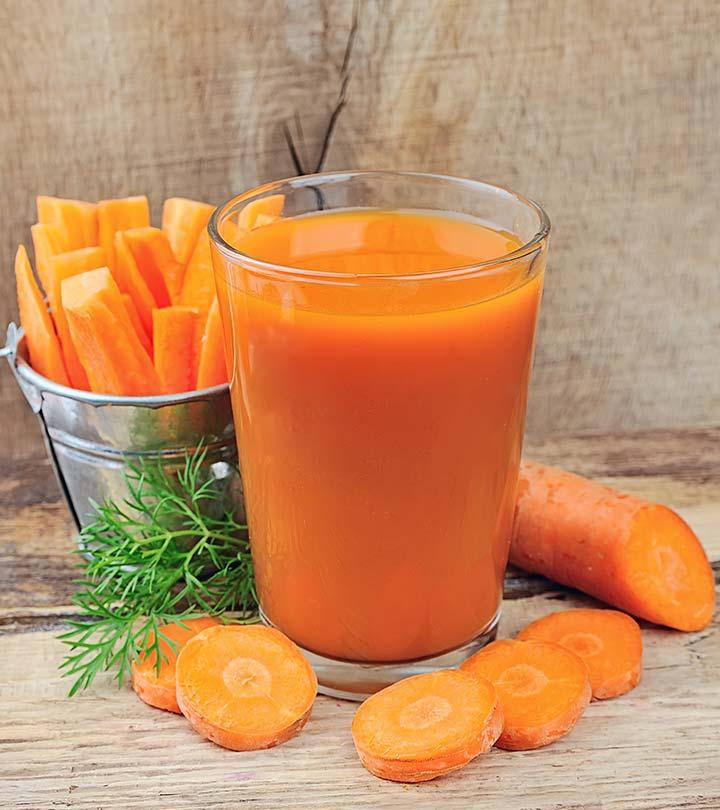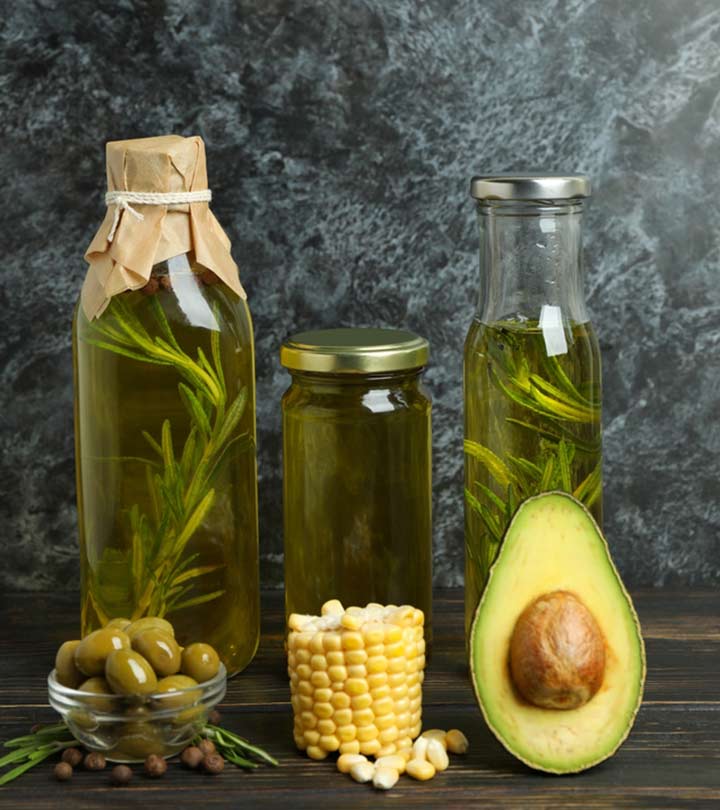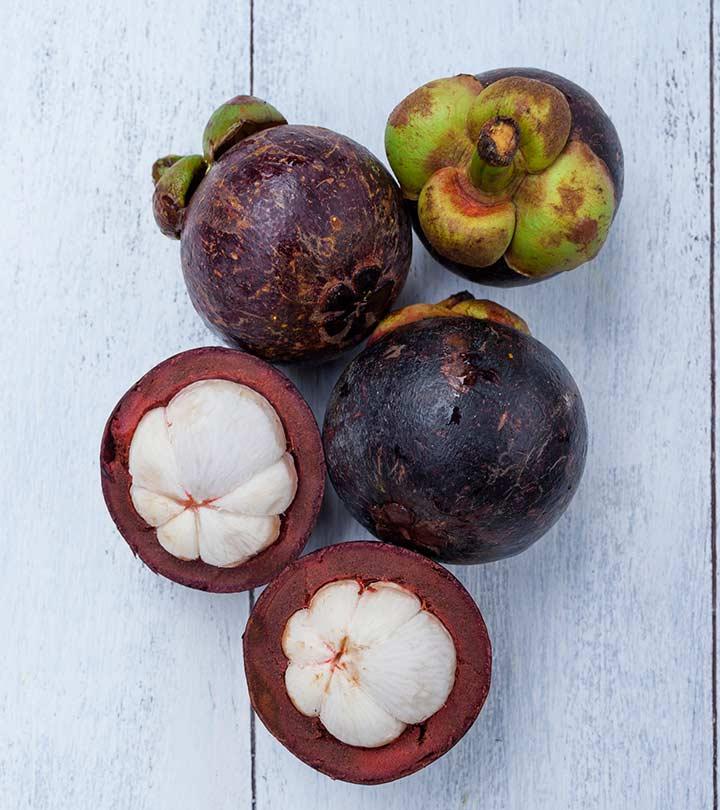13 Amazing Benefits Of Carrots For Your Health
Reasons why you should be rooting for this root veggie and make the most of its benefits.

Image: Shutterstock
The benefits of carrots are known to many of us. These veggies are scientifically called Daucus carota, and offer important benefits when included in our regular diet. They are nutrient-dense and are packed with beneficial antioxidants, vitamins, minerals, fiber, and beta-carotene. In addition, evidence states that carrots can enhance skin health, cut down the risk of cancer, and enhance vision.
Learn about the other carrot benefits, uses of carrots, and the potential side effects of their overconsumption. Read on.
 Know Your Ingredient: Carrots
Know Your Ingredient: CarrotsWhat Is It?
It is an orange root vegetable that is high in nutrients.
What are Its Benefits?
It may improve vision health, boost immunity, improve digestion, promote healthy skin, and aid hair growth. It also has anti-cancer properties and may lower cholesterol levels.
Who Can Use It?
It is safe for everyone, except those with carrot allergies. Individuals with diabetes are advised to include this.
How Often?
You may consume 1 to 2 carrots as part of your daily diet.
Caution
Eating excessive amounts of carrots may cause skin discoloration, and individuals with carrot allergies should avoid consuming them.
In This Article
A Brief On Carrots
People have been eating carrots for over 5,000 years. The vegetable originated in the Middle East and Afghanistan and was initially available only in purple and yellow colors. The familiar orange carrot was developed only later, in the 1600s.
 Fun Fact
Fun FactResearchers today are breeding carrots in different colors, including yellow, bright red, and dark orange to make them more appealing. But what is grabbing attention is the set of pigments in carrots that offer important benefits (1). So, what are carrots good for? Read through to know about some potential health benefits!
What Are The Health Benefits Of Eating Carrots?
1. May Promote Eye Health
Vitamin A, in recommended quantities, is essential for good vision and sharp eyesight, and carrots offer the nutrient in abundance. If a person is deprived of vitamin A for too long, the outer segments of the eyes’ photoreceptorsi XRetinal cells that convert light into electrical signals, which the brain interprets as sight and allows us to experience color. begin to deteriorate. This leads to night blindness (2).
Insufficient vitamin A can disrupt the normal chemical processes involved in vision. Restoring adequate vitamin A intake can facilitate vision health (3).
2. May Reduce Risk Of Cancer
A study investigated the risk of Colorectal Cancer amongst 160,725 individuals. In total, 1889 (3.38%) were diagnosed with Colorectal Cancer risk (CRC) during the first follow-up. The resulting incidence of CRC was 3.9% for those eating no raw carrots, 3.5% for those eating less than 32 g of carrots per day, and 2.9% for those eating more than 32 g of carrots per day. The results indicated a positive relationship between the consumption of carrots and reduced colorectal cancer risk.
Carrots contain numerous phytochemicalsi XBeneficial compounds found in plant-based foods that may reduce the risk of certain chronic diseases, such as cancer. that are well-studied for their anticancer properties (4). A few of these compounds include beta-carotene and other carotenoids. These compounds promote immunity and activate certain proteins that inhibit cancer cells. Studies show that the juice from carrots can combat leukemia as well (5).
The carotenoids present in carrots may reduce the risk of stomach, colon, prostate, lung, and breast cancers in women (6), (7), (8), (9).
Some believe carrots may also reduce oral cancer risk. However, more research is warranted in this regard.
3. May Promote Skin Health
Carrot benefits for the skin are uncountable. Carrots are rich in carotenoids. Research suggests that fruits and vegetables rich in these compounds can improve skin appearance and also help people look relatively younger (10).
However, overconsuming carrots (or other foods high in carotenoids) can result in a condition called carotenemia, wherein your skin appears yellow or orange (11).
4. May Enhance Hair Growth
Carrots are powerhouses of vitamins A and C, carotenoids, potassium, and other antioxidants. Anecdotal evidence suggests that the veggies may contribute to hair health. However, more research is needed in this regard.
5. May Aid Weight Loss
Raw, fresh carrots are about 88% water (1). A medium carrot has only about 25 calories. Hence, including carrots in your diet is a smart way of filling yourself up without piling on calories and consuming immense nutrition as well.
Carrots also contain fiber. In a study, meals containing whole and blended carrots resulted in higher satiety levels in the test subjects (12).
6. May Regulate Blood Pressure
One study claimed that carrot juice contributed to a 5% reduction in systolic blood pressure. The nutrients present in carrot juice, including fiber, potassium, nitrates, and vitamin C, were found to aid this effect (13).
7. May Aid Diabetes Treatment
Following a healthy, balanced diet and maintaining healthy weight can reduce the risk of type 2 diabetes. In studies, low blood levels of vitamin A were found in individuals with diabetes. The abnormalities in glucose metabolism would need an increased need to fight oxidative stress, and this is where the antioxidant vitamin A may help (14).
Carrots are high in fiber. Studies show that increased fiber intake can improve glucose metabolism in individuals with diabetes (15). The veggies can be added to a diabetes meal, to maintain blood sugar levels.
8. May Boost Immunity
Vitamin A regulates the functioning of your system and prevents infections. It achieves this by boosting your body’s immunity (16). Get this immune-boosting vitamin from carrots. Carrots also contain vitamin C which contributes to the production of collagen, which is essential for wound healing. This nutrient further contributes to a strong immune system (17).
Mayra Gianira, a vlogger, spoke about the benefits of drinking carrot juice for 7 days in her video. She said, “When I get a paper cut; within like two hours, it’s fully healed (i).”
 Trivia
Trivia9. May Strengthen Bones
Vitamin A influences bone cell metabolism. Carotenoids are associated with improved bone health (18). Though there is no direct research stating that carrots can help improve bone health, their vitamin A content may help. More studies are needed to further understand this mechanism.
10. May Lower Cholesterol Levels
As per rat studies, carrot consumption can reduce cholesterol absorption and increase the antioxidant status of your body. These effects can also promote cardiovascular health (19). Raw carrots are also rich in a fiber called pectin that may help lower cholesterol (20).
11. Are Good For The Teeth And Gums
Chewing of carrots may promote oral cleanliness (21). Some believe carrots may also freshen breath, though there is no research to substantiate the statement. Anecdotal evidence suggests that carrots may neutralize the citric and malic acids usually left behind in your mouth, promoting oral health.
12. May Promote Liver Health And Eliminate Toxins
Carrots contain glutathione. The antioxidant was found to have the potential to treat liver damage caused by oxidative stress (22). The veggies are also high in plant flavonoidsi X Naturally occurring compounds with antioxidant properties that help protect against toxins and reduce the risk of certain illnesses. and beta-carotene, both of which stimulate and support your overall liver function. The beta-carotene in carrots may also combat liver diseases (23).
13. May Help Treat PCOS
Carrots are non-starchy veggies with a low glycemic indexi XA rating describing the ability of foods to get absorbed slowly into the bloodstream, resulting in a slower rise in blood sugar levels. . These properties may make them a good treatment for PCOS. However, there is no direct research that states that carrots can help in PCOS treatment.
These are the multiple ways carrots can benefit you. We saw a few of the powerful nutrients in carrots. In the following section, we will look at their complete nutritional profile.
What Is The Nutritional Profile Of Carrots?
| Calorie Information | ||
|---|---|---|
| Amounts Per Selected Serving | %DV | |
| Calories | 52.5 (220 kJ) | 3% |
| From Carbohydrate | 46.6 (195 kJ) | |
| From Fat | 2.6 (10.9 kJ) | |
| From Protein | 3.3 (13.8 kJ) | |
| From Alcohol | 0.0 (0.0 kJ) | |
| Carbohydrates | ||
| Amounts Per Selected Serving | %DV | |
| Total Carbohydrate | 12.3 g | 4% |
| Dietary Fiber | 3.6 g | 14% |
| Starch | 1.8 g | |
| Sugars | 6.1 g | |
| Protein & Amino Acids | ||
| Amounts Per Selected Serving | %DV | |
| Protein | 1.2 g | 2% |
| Vitamins | ||
| Amounts Per Selected Serving | %DV | |
| Vitamin A | 21383 IU | 248% |
| Vitamin C | 7.6 mg | 13% |
| Vitamin D | ~ | ~ |
| Vitamin E (Alpha Tocopherol) | 0.8 mg | 4% |
| Vitamin K | 16.9 mcg | 21% |
| Thiamin | 0.1 mg | 6% |
| Riboflavin | 0.1 mg | 4% |
| Niacin | 1.3 mg | 6% |
| Vitamin B6 | 0.2 mg | 9% |
| Folate | 24.3 mcg | 6% |
| Vitamin B12 | 0.0 mcg | 0% |
| Pantothenic Acid | 0.3 mg | 3% |
| Choline | 11.3 mg | |
| Betaine | 0.5 mg | |
| Minerals | ||
| Amounts Per Selected Serving | %DV | |
| Calcium | 42. 2mg | 4% |
| Iron | 0.4 mg | 2% |
| Magnesium | 15.4 mg | 4% |
| Phosphorus | 44.8 mg | 4% |
| Potassium | 410 mg | 12% |
| Sodium | 88.3 mg | 4% |
| Zinc | 0.3 mg | 2% |
| Copper | 0.1 mg | 3% |
| Manganese | 0.2 mg | 9% |
| Selenium | 0.1 mcg | 0% |
| Fluoride | 4.1 mcg | |
Source: USDA
Carrots contain beta-carotene and alpha-carotene – two carotenoids that our bodies convert to vitamin A. Vitamin A plays a significant role in boosting vision and immune function, maintaining healthy cells, and activating carcinogen-metabolizing enzymes, among other roles.
Carrots also contain luteolin, a flavonoid phytochemical that exhibits antioxidant, anti-inflammatory, and anticancer effects (24). They are also great sources of folate, dietary fiber, and several other vitamins and minerals (1).
 Did You Know?
Did You Know?However, not everyone may get the same benefits with carrots. The veggies may cause adverse effects in some individuals.
What Are The Risks Associated With Carrots?
Excess consumption of carrots can be toxic. Carrots may interact with some medications such as acitretin (Soriatane) and isotretinoin (Accutane) for the treatment of psoriasis and acne (25), (26). People on these medications may be required to limit their intake of carrots.
Some people may experience carrot allergies (27). This may trigger swelling and breathing-related issues. Sometimes, it can also lead to anaphylaxis, a severe allergic shock (28).
However, this does not mean you cannot enjoy carrots! When consumed in moderation, they not only offer great benefits, but also make for lip-smacking recipes. Check out one such recipe below.
Healthy Carrot Recipe
Ingredients
- 1.5 cups of sliced carrots
- 1 tablespoon of honey
- 2 tablespoons of olive oil
- Salt and pepper, to taste
How To Prepare
- Preheat the oven to 400o F.
- In a bowl, nicely toss the carrots, honey, olive oil, salt, and pepper.
- Spread the carrots in a single layer on a baking sheet and roast for 20 to 25 minutes, till they are tender and brown.
- Serve as a snack or as a topping on oatmeal.
Infographic: Must-Know Facts About Carrots
Carrots have a wide range of health benefits due to their rich nutritional profile. But does the nutritional content vary between organic and conventionally grown carrots? How can you consume this root vegetable for maximum absorption of its nutrients? We answer these questions in the following infographic besides providing some trivia about the production of carrots. Take a look! Illustration: StyleCraze Design Team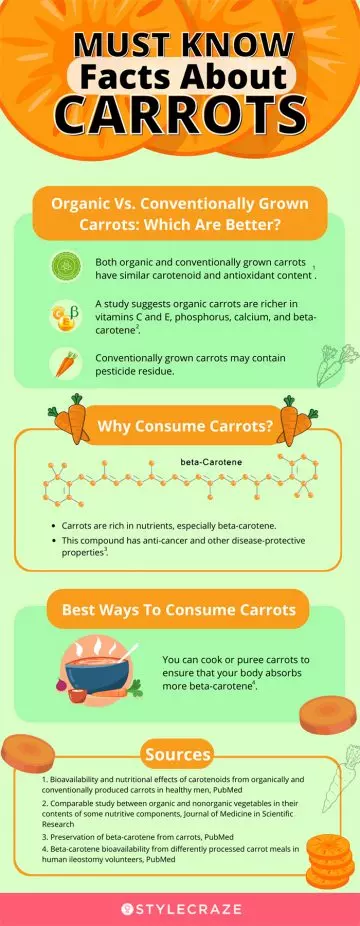
The health benefits of carrots can be attributed to their vitamins, antioxidants, minerals, beta-carotene, and fiber. The antioxidants, other nutrients, and vitamins in carrots can promote eye, skin, hair, bone, and oral health. They aid in cancer prevention and weight loss, regulate blood pressure, boost immunity, and lower cholesterol levels. Anecdotal evidence also suggests the positive impact of carrots on heart health. However, excess consumption of carrots can be toxic or cause allergies in a few individuals. Carrots can also interact with some medications. Hence, caution is advised. Consume them in moderation and enjoy their health benefits.
Frequently Asked Questions
Do carrots help your brain?
Nilofar Pendhari, a certified clinical nutritionist, says, “Carrots are a great source of beta-carotene (which our body converts to Vitamin A). They reduce the oxidative stress in the brain that helps prevent Alzheimer’s disease, improve memory, and fight cognitive decline.”
Are carrots good for the nerves?
Pendhari says, “Carrots contain a high amount of the calming nutrient magnesium, which is much needed by the nervous system. Lack of magnesium causes depression, confusion, panic attacks, cramps, muscular tension, and premenstrual syndrome. Carrots are high in vitamin B6 that helps neurotransmitters function by strengthening the entire nervous system.”
Can you eat raw carrots every day?
Yes, you can. The carotenoids in carrots are converted into vitamin A in the human body. A cup of cooked carrots contains five times the amount of carotenoids you should get in a day. Carrots also provide 3 grams of fiber, which is more than 25% of your daily need (29).
How many carrots should I eat per day?
The average recommended intake of five servings of various fruits and vegetables on a daily basis contains about 6 to 8 mg of carotenoids. Eating one or two to three carrots a day can be recommended.
Also, moderation is key. Consuming more than four carrots a day may cause carotenemia.
Can you eat carrot greens?
Carrot greens contain significantly higher levels of vitamin C than the root. They also contain potassium, calcium, and protein. Though they can be a little bitter if consumed raw, sautéeing the greens in a little olive oil and salt will soften the harsh flavor.
What are the benefits of eating carrots on an empty stomach?
Eating carrots on an empty stomach has many health benefits. Some believe it may detoxify the blood, though more research is warranted.
Is it good to eat carrots in the morning?
Yes. Eating carrots in the morning before a meal is good for health. It may help boost digestion. Also, the fiber in carrots can keep one satiated and prevent overeating.
Does carrot whiten skin?
Possibly not. While carrots may help boost skin health, there is a lack of evidence suggesting that they may alter melanin production and change the skin tone.
Are carrots a superfood?
Yes. Carrots are loaded with beneficial micronutrients and pack several health advantages that make them a superfood.
Key Takeaways
- Carrots contain fiber, high water content, and low calories that may help in weight loss.
- The vitamin A in carrots improves vision health.
- Beta-carotene improves immunity and reduces the risk of prostate, stomach, lung, and breast cancers.
- Carrots can interfere with psoriasis and acne medications and trigger allergic reactions.
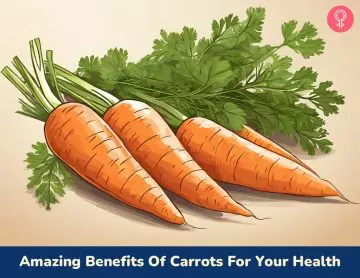
Image: Stable Diffusion/StyleCraze Design Team
References
Articles on StyleCraze are backed by verified information from peer-reviewed and academic research papers, reputed organizations, research institutions, and medical associations to ensure accuracy and relevance. Read our editorial policy to learn more.
- Sharma, Krishan Datt et al. “Chemical composition, functional properties and processing of carrot-a review.” Journal of food science and technology vol. 49,1 (2012): 22-32.
https://www.ncbi.nlm.nih.gov/pmc/articles/PMC3550877/ - Lindeboom, G. A. “Historical milestones in the treatment of night blindness.” Clio medica (Amsterdam, Netherlands) 19.1-2 (1984): 40-49.
https://www.ncbi.nlm.nih.gov/pubmed/6085992 - Rasmussen, Helen M., and Elizabeth J. Johnson. “Nutrients for the aging eye.” Clinical interventions in aging 8 (2013): 741.
https://www.ncbi.nlm.nih.gov/pmc/articles/PMC3693724/ - Ahmad, Tanveer, et al. “Phytochemicals in Daucus carota and Their Health Benefits.” Foods 8.9 (2019): 424.
https://www.ncbi.nlm.nih.gov/pmc/articles/PMC6770766/ - Zaini, Rana, Malcolm R. Clench, and Christine L. Le Maitre. “Bioactive chemicals from carrot (Daucus carota) juice extracts for the treatment of leukemia.” Journal of medicinal food 14.11 (2011): 1303-1312.
https://www.ncbi.nlm.nih.gov/pubmed/21864090 - Larsson, Susanna C., et al. “Vitamin A, retinol, and carotenoids and the risk of gastric cancer: a prospective cohort study.” The American journal of clinical nutrition 85.2 (2007): 497-503.
https://www.ncbi.nlm.nih.gov/pubmed/17284749 - Slattery, Martha L., et al. “Carotenoids and colon cancer.” The American journal of clinical nutrition 71.2 (2000): 575-582.
https://www.ncbi.nlm.nih.gov/pubmed/10648274 - Wu, Kana, et al. “Plasma and dietary carotenoids, and the risk of prostate cancer: a nested case-control study.” Cancer Epidemiology and Prevention Biomarkers 13.2 (2004): 260-269.
https://www.ncbi.nlm.nih.gov/pubmed/14973107 - Eliassen, A. Heather, et al. “Circulating carotenoids and risk of breast cancer: pooled analysis of eight prospective studies.” Journal of the National Cancer Institute 104.24 (2012): 1905-1916.
https://www.ncbi.nlm.nih.gov/pubmed/23221879 - Darvin, Maxim E., et al. “The role of carotenoids in human skin.” Molecules 16.12 (2011): 10491-10506.
https://www.ncbi.nlm.nih.gov/pmc/articles/PMC6264659/ - Lascari, André D. “Carotenemia: A review.” Clinical pediatrics 20.1 (1981): 25-29.
https://www.ncbi.nlm.nih.gov/pubmed/7449242 - Moorhead, S. Anne, et al. “The effects of the fibre content and physical structure of carrots on satiety and subsequent intakes when eaten as part of a mixed meal.” British journal of nutrition 96.3 (2006): 587-595.
https://www.ncbi.nlm.nih.gov/pubmed/16925866 - Potter, Andrew S., et al. “Drinking carrot juice increases total antioxidant status and decreases lipid peroxidation in adults.” Nutrition journal 10.1 (2011): 96.
https://www.ncbi.nlm.nih.gov/pmc/articles/PMC3192732/ - Valdés-Ramos, Roxana, et al. “Vitamins and type 2 diabetes mellitus.” Endocrine, Metabolic & Immune Disorders-Drug Targets (Formerly Current Drug Targets-Immune, Endocrine & Metabolic Disorders) 15.1 (2015): 54-63.
https://www.ncbi.nlm.nih.gov/pubmed/25388747 - Wolfram, Taylor, and Faramarz Ismail-Beigi. “Efficacy of high-fiber diets in the management of type 2 diabetes mellitus.” Endocrine practice 17.1 (2011): 132-142.
https://www.ncbi.nlm.nih.gov/pubmed/20713332 - Huang, Zhiyi, et al. “Role of vitamin A in the immune system.” Journal of clinical medicine 7.9 (2018): 258.
https://www.ncbi.nlm.nih.gov/pmc/articles/PMC6162863/ - Ang, Abel, et al. “Vitamin C and immune cell function in inflammation and cancer.” Biochemical Society Transactions 46.5 (2018): 1147-1159.
https://www.ncbi.nlm.nih.gov/pmc/articles/PMC6195639/ - Tanumihardjo, Sherry A. “Vitamin A and bone health: the balancing act.” Journal of Clinical Densitometry 16.4 (2013): 414-419.
https://www.ncbi.nlm.nih.gov/pubmed/24183637 - Nicolle, Catherine, et al. “Effect of carrot intake on cholesterol metabolism and on antioxidant status in cholesterol-fed rat.” European Journal of Nutrition 42.5 (2003): 254-261.
https://www.ncbi.nlm.nih.gov/pubmed/14569406 - The effect of sugar-free and sugar chewing gums on plaque deposition
https://www.ncbi.nlm.nih.gov/labs/pmc/articles/PMC3469898/ - Plaque Removal, The Cleaning of Teeth, ScienceDirect.
https://www.sciencedirect.com/topics/medicine-and-dentistry/plaque-removal - Sacco, Rodolfo, Roberto Eggenhoffner, and Luca Giacomelli. “Glutathione in the treatment of liver diseases: insights from clinical practice.” Minerva gastroenterologica e dietologica 62.4 (2016): 316-324.
https://www.ncbi.nlm.nih.gov/pubmed/27603810 - Guan, Yong-Song, and Qing He. “Plants consumption and liver health.” Evidence-Based Complementary and Alternative Medicine 2015 (2015).
https://www.ncbi.nlm.nih.gov/pmc/articles/PMC4499388/ - Ballmer-Weber, Barbara K., et al. “Carrot allergy: double-blinded, placebo-controlled food challenge and identification of allergens.” Journal of allergy and clinical immunology 108.2 (2001): 301-307.
https://www.ars.usda.gov/news-events/news/research-news/2004/new-carrots-offer-colorful-surprises-and-health-benefits/ - Vitamin A, National Institutes of Health.
https://ods.od.nih.gov/factsheets/VitaminA-Consumer/ - VHA Pharmacy Benefits Management Strategic Healthcare Group and Medical Advisory Panel, National PBM Drug Monograph.
https://www.pbm.va.gov/PBM/clinicalguidance/drugmonographs/VitaminSupplementforMacularDegenerationOcuviteDrugMonograph.pdf - Ballmer-Weber, Barbara K., et al. “Carrot allergy: double-blinded, placebo-controlled food challenge and identification of allergens.” Journal of allergy and clinical immunology 108.2 (2001): 301-307.
https://www.ncbi.nlm.nih.gov/pubmed/11496252 - Schiappoli, M., et al. “Anaphylaxis due to carrot as hidden food allergen.” Allergologia et immunopathologia 30.4 (2002): 243-244.
https://www.ncbi.nlm.nih.gov/pubmed/12199970 - Carrots, cooked, boiled, drained, without salt
https://fdc.nal.usda.gov/fdc-app.html#/food-details/170394/nutrients
















